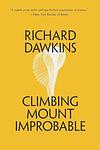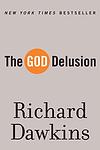Richard Dawkins
Richard Dawkins is an English ethologist, evolutionary biologist, and author. He is best known for his work in the field of evolutionary biology and for his advocacy of atheism and secularism. He gained prominence with his 1976 book 'The Selfish Gene', which popularized the gene-centered view of evolution. Dawkins is also known for his criticism of creationism and intelligent design. His other notable works include 'The Extended Phenotype', 'The Blind Watchmaker', and 'The God Delusion'.
Books
This list of books are ONLY the books that have been ranked on the lists that are aggregated on this site. This is not a comprehensive list of all books by this author.
-
1. The Selfish Gene
This groundbreaking book presents a revolutionary perspective on the theory of natural selection. The author argues that genes, rather than individuals or species, are the true units of evolution. He suggests that these 'selfish' genes are driven by their own survival, leading to complex behaviors and characteristics in the organisms they inhabit. This work reframes our understanding of evolution, emphasizing the gene's role in shaping biological life and behavior.
-
2. Climbing Mount Improbable
In this thought-provoking exploration of evolutionary biology, the book delves into the intricate mechanisms of natural selection that have sculpted the complex, seemingly improbable forms of life on Earth. Using the metaphor of a mountain to represent the vast landscape of evolutionary possibilities, the author guides readers through a series of biological marvels, from the sophisticated optics of the eye to the elaborate structures of spider webs, demonstrating how gradual, step-by-step changes can lead to the astonishing diversity of life. The book illuminates the power of cumulative selection to produce highly adapted organisms and dispels the notion that such complexity requires intelligent design, reinforcing the marvels of evolution as a process of climbing peaks of adaptive fitness in the vast terrain of biological possibility.
-
3. The God Delusion
This book is a well-known critique of religion, arguing that belief in a supernatural creator significantly lacks empirical evidence. The author asserts that faith encourages wars and fosters fanaticism. He also challenges the idea that morality can only come from religion, suggesting instead that humans possess innate empathy and cooperation. The book also explores the roots of religion, explaining its evolution as a byproduct of our tendency to assign agency to inanimate objects and forces. Ultimately, the author encourages atheism and a sense of awe derived from science and the natural world.
-
4. The Magic Of Reality
This book is a fascinating exploration of the natural world, blending scientific rigor with the sheer wonder of discovery. It aims to demystify the universe by explaining phenomena that have long been shrouded in myth and superstition through the lens of science and reason. By examining a series of questions that have intrigued humans for centuries, the book systematically debunks myths and legends by presenting the scientific facts in a way that is accessible and engaging. Through this approach, it celebrates the beauty and complexity of the world, encouraging curiosity and a deeper understanding of reality as revealed through science.



